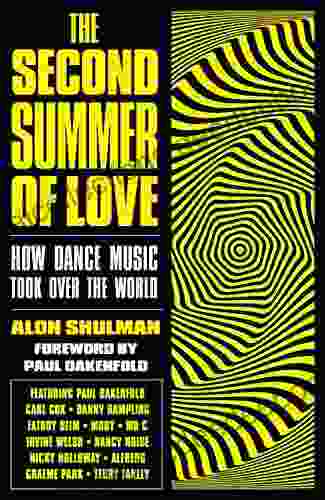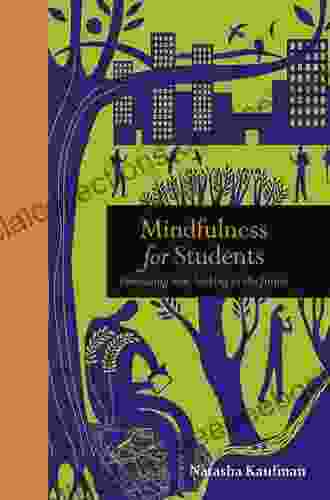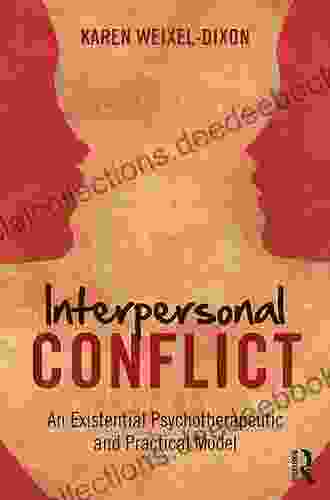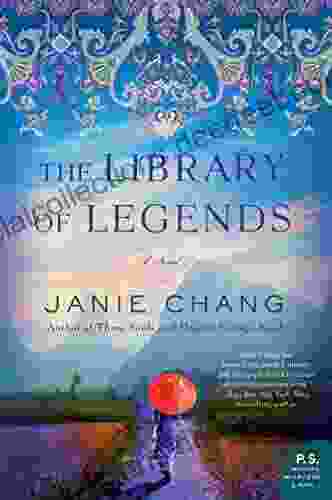Interpersonal Conflict: An Existential Psychotherapeutic and Practical Model

Interpersonal conflict is a natural part of human interaction. It can occur between individuals, groups, or even nations. Conflict can be a source of stress, anxiety, and even violence. However, it can also be an opportunity for growth and learning.
5 out of 5
| Language | : | English |
| File size | : | 747 KB |
| Text-to-Speech | : | Enabled |
| Screen Reader | : | Supported |
| Enhanced typesetting | : | Enabled |
| Word Wise | : | Enabled |
| Print length | : | 142 pages |
| Paperback | : | 152 pages |
| Item Weight | : | 0.353 ounces |
| Dimensions | : | 5.55 x 0.39 x 8.46 inches |
When conflict is handled effectively, it can help to strengthen relationships and build understanding. However, when conflict is handled poorly, it can lead to estrangement, resentment, and even violence.
In this article, we will explore the nature of interpersonal conflict from an existential psychotherapeutic perspective. We will then provide a practical model for understanding and resolving conflict, based on the principles of existentialism and humanistic psychology.
The Existential Nature of Interpersonal Conflict
Existentialism is a philosophical perspective that emphasizes the importance of individual freedom, responsibility, and choice. Existential psychotherapists believe that conflict is an inherent part of the human condition. We are all born into a world that is often充满冲突的矛盾和不确定性。
As we grow and develop, we learn to cope with conflict in different ways. Some of us learn to avoid conflict altogether. Others learn to confront conflict head-on. Still others learn to use conflict as an opportunity for growth and learning.
The way we cope with conflict is influenced by a number of factors, including our personality, our life experiences, and our cultural background. However, existential psychotherapists believe that our fundamental orientation towards conflict is ultimately determined by our understanding of our own existence.
If we believe that we are free and responsible beings, we are more likely to view conflict as an opportunity for growth and learning. We are more likely to be willing to take risks and to try new things. We are also more likely to be compassionate and forgiving towards others.
On the other hand, if we believe that we are victims of our circumstances, we are more likely to view conflict as a threat. We are more likely to be defensive and to try to control others. We are also more likely to be judgmental and unforgiving towards others.
Our understanding of our own existence also influences the way we communicate with others. If we believe that we are separate and isolated beings, we are more likely to communicate in a defensive and self-protective way. We are more likely to use blame and criticism.
On the other hand, if we believe that we are interconnected with others, we are more likely to communicate in a open and honest way. We are more likely to use empathy and understanding.
A Practical Model for Resolving Interpersonal Conflict
The following model is based on the principles of existentialism and humanistic psychology. It provides a practical framework for understanding and resolving interpersonal conflict:
1. Self-Awareness: The first step in resolving conflict is to become aware of your own needs, feelings, and motivations. This includes understanding your own values, beliefs, and goals. It also includes understanding your own strengths and weaknesses. 2. Empathy: The second step is to develop empathy for the other person. This means trying to see the world from their perspective. It means understanding their needs, feelings, and motivations. It also means understanding their strengths and weaknesses. 3. Communication: The third step is to communicate your needs, feelings, and motivations to the other person. This should be done in a clear, honest, and respectful way. It is important to avoid blaming or criticizing the other person. 4. Negotiation: The fourth step is to negotiate a mutually acceptable solution. This may involve finding a compromise or finding a way to meet both of your needs. It is important to be willing to be flexible and to work together to find a solution that works for both of you. 5. Forgiveness: The fifth and final step is to forgive the other person. This does not mean that you condone their behavior. It simply means that you let go of your anger and resentment. Forgiveness is essential for moving on from conflict and building a healthy relationship.
Interpersonal conflict is a natural part of human interaction. However, it can be a source of stress, anxiety, and even violence. When conflict is handled effectively, it can help to strengthen relationships and build understanding. However, when conflict is handled poorly, it can lead to estrangement, resentment, and even violence.
The existential psychotherapeutic model provides a practical framework for understanding and resolving interpersonal conflict. This model emphasizes the importance of self-awareness, empathy, communication, negotiation, and forgiveness. By following these steps, you can increase your chances of resolving conflict effectively and building healthy relationships.
5 out of 5
| Language | : | English |
| File size | : | 747 KB |
| Text-to-Speech | : | Enabled |
| Screen Reader | : | Supported |
| Enhanced typesetting | : | Enabled |
| Word Wise | : | Enabled |
| Print length | : | 142 pages |
| Paperback | : | 152 pages |
| Item Weight | : | 0.353 ounces |
| Dimensions | : | 5.55 x 0.39 x 8.46 inches |
Do you want to contribute by writing guest posts on this blog?
Please contact us and send us a resume of previous articles that you have written.
 Book
Book Novel
Novel Chapter
Chapter Text
Text Genre
Genre Reader
Reader Paperback
Paperback E-book
E-book Magazine
Magazine Newspaper
Newspaper Shelf
Shelf Glossary
Glossary Foreword
Foreword Preface
Preface Annotation
Annotation Footnote
Footnote Scroll
Scroll Codex
Codex Bestseller
Bestseller Library card
Library card Narrative
Narrative Biography
Biography Encyclopedia
Encyclopedia Character
Character Catalog
Catalog Card Catalog
Card Catalog Periodicals
Periodicals Research
Research Reserve
Reserve Academic
Academic Journals
Journals Rare Books
Rare Books Special Collections
Special Collections Interlibrary
Interlibrary Study Group
Study Group Thesis
Thesis Dissertation
Dissertation Awards
Awards Reading List
Reading List Theory
Theory Jami Borek
Jami Borek Steven A Knight
Steven A Knight Aaron Brander
Aaron Brander Sonia Mainstone Cotton
Sonia Mainstone Cotton Jay H Krachmer
Jay H Krachmer Donna Gielow Mcfarland
Donna Gielow Mcfarland Albert M Sandler
Albert M Sandler Regpub
Regpub Dora Hiers
Dora Hiers Mahanidhi Swami
Mahanidhi Swami Micaela Baranello
Micaela Baranello David Mcneill
David Mcneill Robin Mastro
Robin Mastro Dan Slater
Dan Slater Malcolm Hotzman
Malcolm Hotzman Aaron Blabey
Aaron Blabey Natalie Bright
Natalie Bright Stanley Foster Reed
Stanley Foster Reed Lee M S
Lee M S Jon Gorrie
Jon Gorrie
Light bulbAdvertise smarter! Our strategic ad space ensures maximum exposure. Reserve your spot today!

 Haruki MurakamiThe Second Summer of Love: A Cultural Revolution Sparked by Ecstasy and Acid...
Haruki MurakamiThe Second Summer of Love: A Cultural Revolution Sparked by Ecstasy and Acid... Billy PetersonFollow ·10.4k
Billy PetersonFollow ·10.4k Charles ReedFollow ·16.6k
Charles ReedFollow ·16.6k Jeff FosterFollow ·15.9k
Jeff FosterFollow ·15.9k Christopher WoodsFollow ·7.2k
Christopher WoodsFollow ·7.2k Robert HeinleinFollow ·9.1k
Robert HeinleinFollow ·9.1k Seth HayesFollow ·2.6k
Seth HayesFollow ·2.6k Robert Louis StevensonFollow ·15.7k
Robert Louis StevensonFollow ·15.7k Cristian CoxFollow ·6.7k
Cristian CoxFollow ·6.7k

 Andy Hayes
Andy HayesEmbracing Now: Embark on a Mindfulness Journey for a...
In a world...

 Heath Powell
Heath Powell100 Hymns for Violin and Guitar: A Comprehensive Guide to...
The violin and...

 Floyd Richardson
Floyd RichardsonBark In The Park: Poems For Dog Lovers
Dogs are our best...

 Douglas Adams
Douglas AdamsThe Barter Crusade: A Journey into the Realm of Exchange...
In a world driven by monetary transactions,...

 Nathaniel Hawthorne
Nathaniel HawthorneInsight Guides Explore Nice & the French Riviera...
Prepare to embark on an unforgettable journey...

 Carlos Fuentes
Carlos FuentesThe Ultimate Practical Guide to Percussion: Exploring the...
Embark on a journey into the enchanting...
5 out of 5
| Language | : | English |
| File size | : | 747 KB |
| Text-to-Speech | : | Enabled |
| Screen Reader | : | Supported |
| Enhanced typesetting | : | Enabled |
| Word Wise | : | Enabled |
| Print length | : | 142 pages |
| Paperback | : | 152 pages |
| Item Weight | : | 0.353 ounces |
| Dimensions | : | 5.55 x 0.39 x 8.46 inches |










